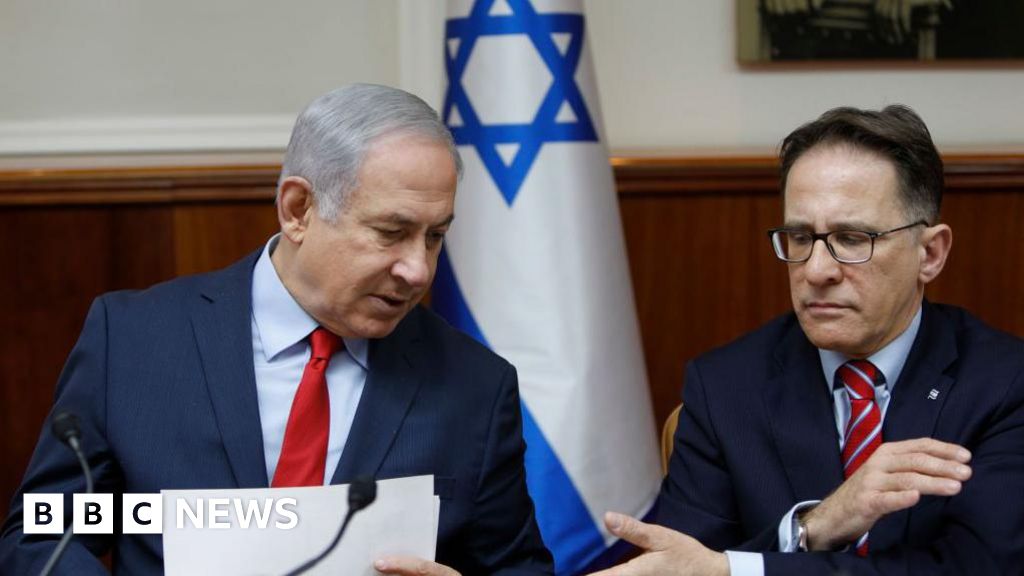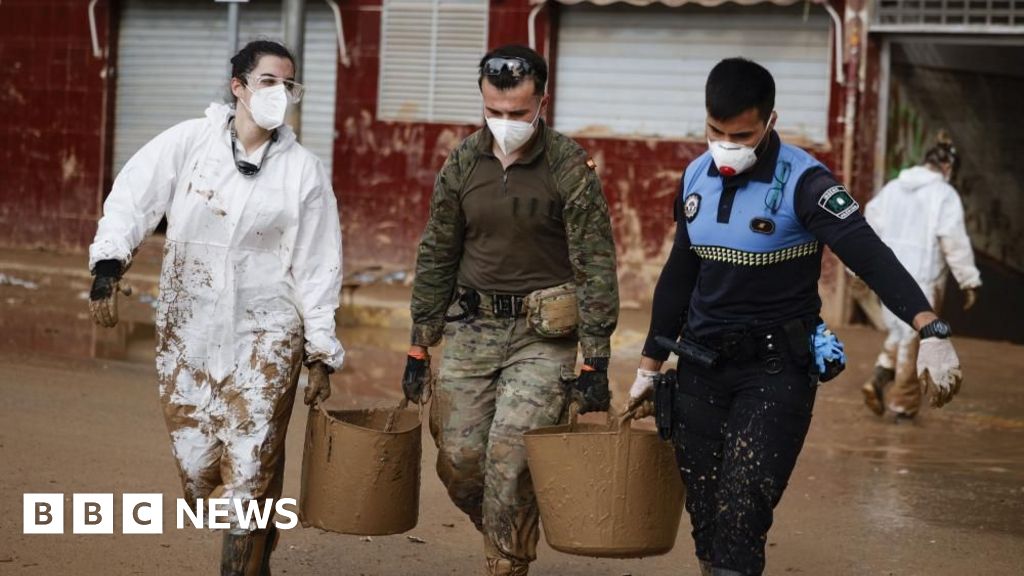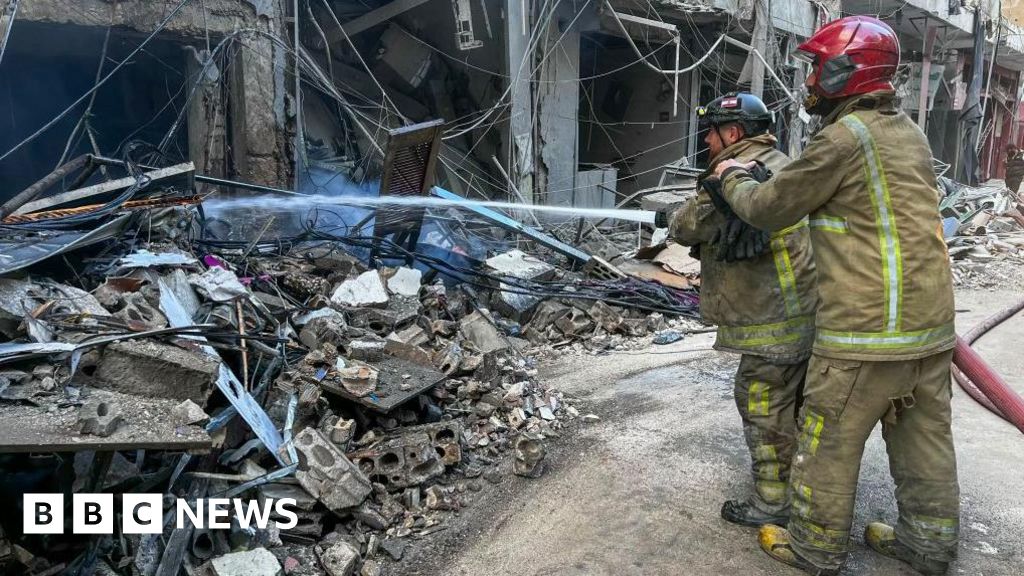ARTICLE AD BOX
Image source, ECJ
Image caption, The European Court of Justice sits in LuxembourgThe UK government has said it wants to remove the European Court of Justice from its oversight role as part of the Northern Ireland Protocol, saying as long as it continues the protocol will never survive. The EU, on the other hand, has said it would be very hard for the protocol to continue without the court's oversight. So what is the ECJ, what is its role in the protocol and what are the possible alternatives?
What is the European Court of Justice?
The Court of Justice of the European Union - to give it its full name - is the EU's highest legal authority. It is based in Luxembourg.
It is actually composed of two separate courts - the Court of Justice and the General Court. From 2004 to 2016 there was a third court, the Civil Service Tribunal, but its work is now done by the General Court.
To avoid confusion this article will refer to the European Court of Justice (ECJ) to describe the work of the entire institution.
If you want to know more detail, or look up a specific case, you can do so here.
It's not to be confused with the European Court of Human Rights (ECtHR), which is a separate institution and is not part of the European Union.
So what does the ECJ do?
It decides whether the institutions of the EU are acting legally, and it settles disputes between them.
It ensures that the member states of the EU are complying with their legal obligations as set out in the EU treaties and it allows member states to challenge EU legislation.
It interprets EU law at the request of national courts.
Taken all together, this means that the ECJ interprets and enforces the rules of the single market, and pretty much everything else that the EU does.
What has it got to do with the Northern Ireland Protocol?
Under the terms of the protocol - agreed jointly by the UK and EU as part of the Brexit deal - Northern Ireland continues to follow EU rules on product standards, which enable the free movement of goods in the EU's single market.
Many goods need to be inspected when they arrive at Northern Ireland's ports and customs documents have to be filled in.
The agreement that created the protocol states that representatives from the EU have the right to oversee its implementation and application.
It also states that the ECJ has jurisdiction to rule on matters of EU law in Northern Ireland.
If there was a dispute around compliance with applicable EU law, the EU could take the UK to the ECJ, which would rule on whether the UK was in breach of its obligations under the terms of the protocol.
In any cases brought before the ECJ, the UK would participate in proceedings in the same way as an EU member state.
What does the UK government want to change?
Brexit Minister Lord Frost wants the ECJ's role in overseeing the protocol to be removed.
In a paper published in July, the government said it had only agreed to the ECJ's role because of the "very specific circumstances" of the protocol negotiation.
It now wants a new governance arrangement in which disputes should be "managed collectively and ultimately through international arbitration".
This objection to the ECJ's role can be linked back to the Brexit referendum. In fact it goes right back to one of the problems that British Eurosceptics have always had with the EU - the fact that European courts were able to rule on matters of EU law in the UK.
During the Brexit campaign a key slogan for the leave campaign was "take back control".
Then at the Conservative Party conference in October 2016, the new Prime Minister Theresa May said: "We are not leaving (the EU) only to return to the jurisdiction of the European Court of Justice. That is not going to happen."
Image source, Vote Leave
Image caption, "Take back control" was a key slogan of the Vote Leave campaignVague promises to take back control of our laws suddenly became a very specific promise to end the jurisdiction of the ECJ in the UK. It became a government red line.
But that did not stop the government signing up to the NI Protocol, complete with ECJ oversight. It is that which Lord Frost now wants to change.
What has the EU said?
The EU is bringing forward its own proposals on Wednesday, but these will focus on easing practical problems with the movement of goods from Great Britain to Northern Ireland, rather than changing oversight arrangements.
Speaking early in October, European Commission Vice-President Maros Šefčovič said: "I find it hard to see how Northern Ireland would stay or would keep the access to the single market without oversight of the European Court of Justice."
There was also a strong response from Irish Foreign Minister Simon Coveney after Lord Frost reiterated that he wanted the ECJ removed from its oversight role.
Image source, Reuters
Image caption, Irish Foreign Minister Simon Coveney said the UK was dismissing EU solutionsMr Coveney said the UK's demands on the protocol could "cause a breakdown in relations" with the EU.
Speaking to RTÉ's Morning Ireland programme he added that the UK's dismissals were now "more serious", given the comprehensive compromise proposals the EU is bringing forward.
"Each time the EU comes forward with new ideas, new proposals to try to solve problems, they are dismissed before they are released and that is happening again this week," Mr Coveney said.
He said dismissals were being seen across the EU as "the same pattern, over and over again" by the UK.
What are the possible alternatives?
We need to wait and see what exactly the UK government is proposing, but some hypothetical alternatives have been mooted.
One alternative that has been suggested is the model associated with dispute resolution used in the main withdrawal treaty with the EU and bilateral treaties the EU has concluded with neighbouring countries like Ukraine.
Under these treaties, proceedings go to an arbitration panel before proceedings in front of the ECJ, but only for questions of interpreting EU law.
David Phinnemore, professor of European politics at Queen's University Belfast, says one problem with this from the EU's point of view is that the EU is clear that the only body that can interpret EU law is the ECJ - not an intermediary such as the arbitration panel.
But Anton Spisak, trade policy lead at the Tony Blair Institute, suggests it could provide a "landing zone" for the UK government and the EU.
He says that while the ECJ is the only body that can interpret EU law, the arbitration panel acts as the "default arbiter".
In his view the UK is ultimately prepared to accept a "more narrow role for the ECJ not as a default, but only in those circumstances where EU rules apply".
He says: "The arbitration panel is the one making the ultimate decision, but the panel has to take the views of the ECJ into account.
"This is the way the EU has dealt with other third countries applying EU law in the past and the reason why I think it is a realistic proposition is that the EU recently put it on the table with Switzerland."
Another possible alternative is something along the lines of the EFTA Court, which is responsible for the three countries which are members of the European Economic Area (EEA): Iceland, Liechtenstein and Norway.
Prof Phinnemore says: "In theory that is a a possible alternative, but it would mean setting up a dedicated court for Northern Ireland."
He also points out that the EFTA Court rules in line with the jurisprudence of the ECJ.
Mr Spisak also does not believe the EFTA Court is a practical solution.
Image source, Getty Images
Image caption, The principality of Liechtenstein is one of three members of the European Economic AreaSo is there a solution?
Prof Phinnemore says: "There is no precedent that allows anything other than the ECJ to rule on EU market rules.
"If you want to be part of the single market for goods you have to follow EU rules and I cannot see the EU moving away from that".
Mr Spisak says: "In a sensitive debate like this it is useful to start from the first principals. If there are EU rules in the protocol, whether now or in some kind of renegotiated agreement, it is simply unavoidable for the ECJ to be an arbiter of those rules.
"And because it is unlikely to have a protocol where EU rules don't feature at all, both sides have to find a way of accommodating the ECJ within that agreement."
But he believes there is a possible compromise to be struck.
He says: "There is a technical solution that looks like a more standard international treaty but involves the ECJ in specific circumstances. The real difficulty is political.
"The EU compromising on the ECJ would signal to the UK that it is ready to renegotiate a key part of the protocol, which it has said it wouldn't do."
What will happen?
At the moment, things remain uncertain.
BBC News NI's Economics and Business Editor John Campbell says there are two schools of thought about how this latest negotiation is shaping up.
The first is that Lord Frost's hard line on the ECJ is standard pre-negotiation tactics, aimed at grinding out another concession or two.
After all the Brexit process has always delivered a deal, even at times when it seemed improbable.
There is another view, hinted at by Mr Coveney, that maybe the UK doesn't want a deal unless it's total victory.
Under that scenario the UK would go through the motions before triggering Article 16.
It would use this to gut the protocol while calculating that the EU's ability to retaliate is limited or or at least would take a long time to amount to anything.
We should find out which view is right by the end of this year.

 3 years ago
41
3 years ago
41








 English (US)
English (US)